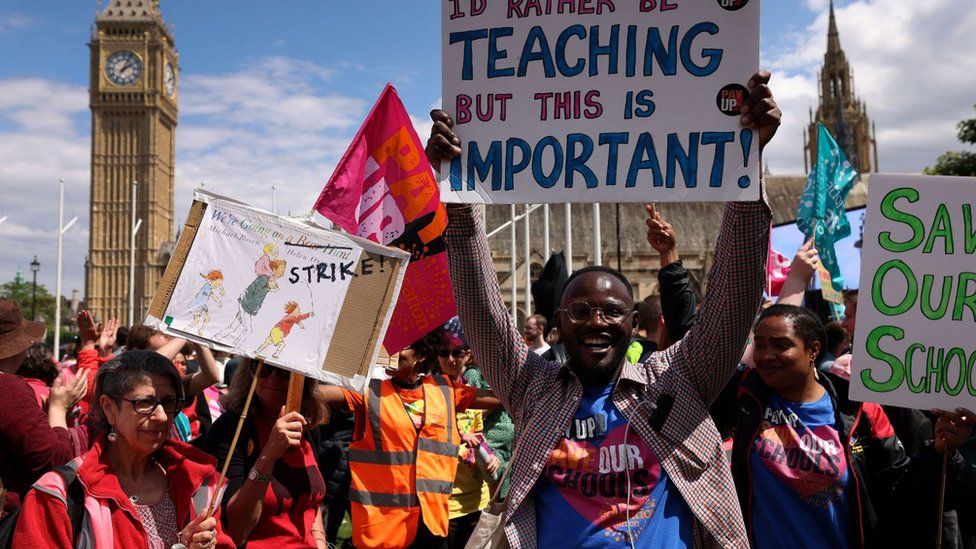ARTICLE AD BOX
 Image source, PA Media
Image source, PA Media
The UK economy grew in August following a sharper fall in July as the education sector recovered from strike action, according to official figures.
The Office for National Statistics said the economy expanded by 0.2% in August, in line with forecasts.
Updated figures showed that July performed worse than originally thought.
But despite this, the ONS said overall the economy had grown "modestly" over the past three months.
Darren Morgan, director of economic statistics at the ONS, said that over the longer-term the economy had been boosted by car manufacturing and sales as well as construction.
But in August, the services sector was the main contributor to the 0.2% growth, the ONS said.
This, said Mr Morgan, was because it was a comparatively quiet month compared to previous periods.
He told the BBC's Today programme: "Compared with previous months where there's been a lot of significant factors impacting on the economy both in terms of adding to and reducing growth like the additional bank holiday for the King's Coronation, large number of working days lost because of industrial action and extreme weather - sunshine and rain - August was relatively quiet in that sense."
Although schools are on holiday in August, the ONS measures the education sector's contribution to the economy over the year as a whole.
As well as education, computer programmers and engineers also contributed to August's reading, Mr Morgan said.
The figure produced by the ONS to show the health of the UK economy is known as gross domestic product (GDP).
GDP is a measure - or an attempt to measure - all the activity of companies, governments and individuals in a country.
If the figure is increasing, it means the economy is growing and people are doing more work and getting a little bit richer, on average.
But if GDP is falling, then the economy is shrinking which can be bad news for businesses. If GDP falls for two quarters in a row, it is typically defined as an economic recession.

 1 year ago
26
1 year ago
26








 English (US)
English (US)